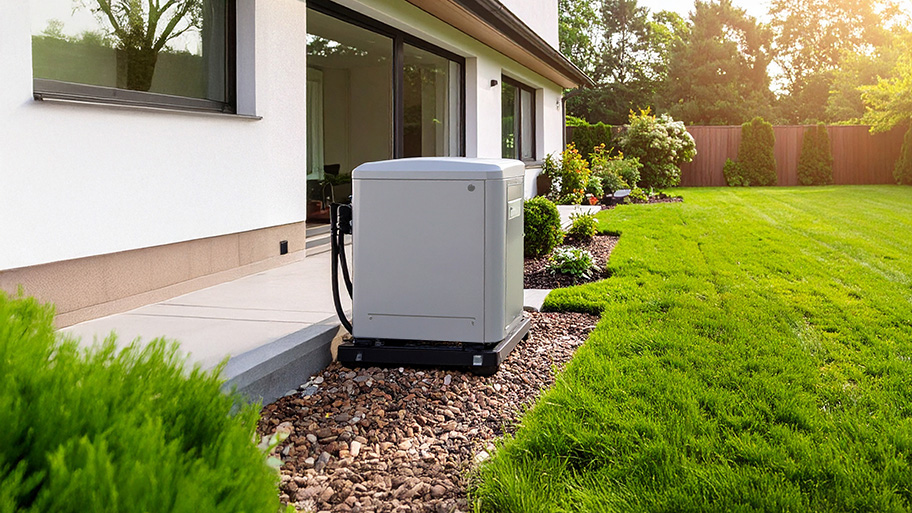
The average cost of a whole-house generator falls between $5,000 and $25,000. Keep reading to learn how much you can expect to spend.
Keep your essentials powered during an outage


Power outages are inconvenient at best and catastrophic at worst. By learning how to hook up a generator to your house, you can keep your important devices and appliances powered during an emergency. Here’s how to hook up a generator to your house.
For a worry-free power backup, leave generator fixes and installations to generator professionals who have the skills, tools, and knowledge required to handle these complex systems.
A backup generator is a crucial tool for providing power to your essential appliances and devices during unforeseen power outages. Getting left in the dark is bad enough, but a sudden outage can quickly become a major issue if you have medical equipment, aquariums, a stockpile of perishable foods, or other important things relying on a power source. A backup generator provides a much-needed sense of security against emergency outages, especially in regions prone to severe weather or grid failures.
Numerous wiring options exist for connecting a generator to a house, with two of the most prominent choices being manual transfer switches and interlock kits. While manual transfer switches require professional installation, they’re universally legal and the safest option.
When selecting your generator, determine which devices and appliances you can’t do without. Then, calculate the total watts needed to power them, just as you would when calculating your home's electrical load. Gasoline-powered generators typically have a power rating in watts that represents how much continuous power it can provide for approximately 12 hours on one fuel tank. If your home’s power needs can’t be met with a portable generator, you may want to consider investing in the cost of a whole-house generator.
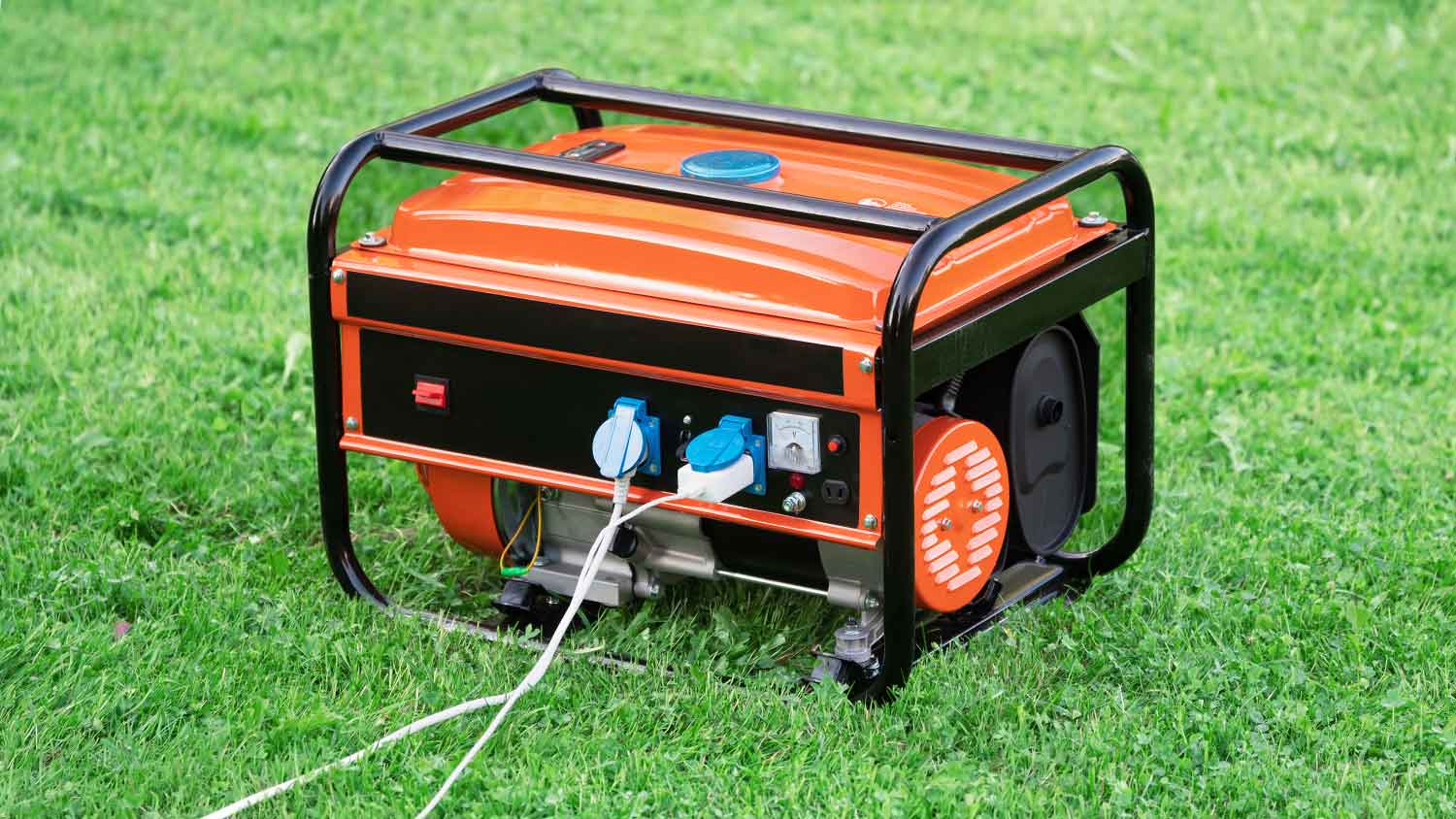
As mentioned above, the safest option is to hire a generator installation professional to hook up your generator. If you’re in a situation that requires immediate set-up, follow these steps.
Hire a professional electrician to install an inlet box hookup, which is a recessed pronged connector that goes on the exterior of your home and links to the indoor panel system.
Get a professional inspection done by an electrician to ensure your setup is safe and won’t void your homeowner’s insurance due to any faulty wiring.
Position your generator at least 10 feet away from the house, or as far as the provided cable allows, to mitigate the risk of fires due to generator malfunctions.
Connect your generator to the inlet hookup by aligning the holes at the end of the generator's cord with the prongs on the hookup.
Insert the plug. You may need to rotate it slightly to fully engage the connection with the hookup.
Grab your generator’s cable for house connection and plug it in. Never directly plug the generator into a wall outlet or your home’s wiring.
Like with the other end and the receptacle, rotate the plug slightly to ensure a secure connection.
Verify the engine’s oil level by ensuring that the engine’s throttle aligns with the specifications in your generator’s user manual.
Prior to operating the generator, ensure all appliances are unplugged and turned off.
Start the engine by following the manufacturer's guidelines.
Allow the generator's engine to operate for approximately 5 minutes, enabling it to warm up before transitioning to the systems and flipping the breakers.
Go to your breaker box, flip off the utility main, and turn on the generator main.
Gradually activate the breakers on the installed system, powering up each load individually.
Ensure your generator is now providing electricity to the necessary devices and appliances in your home.
Once the trial run is over, turn off the breakers on the generator main and turn off the generator main.
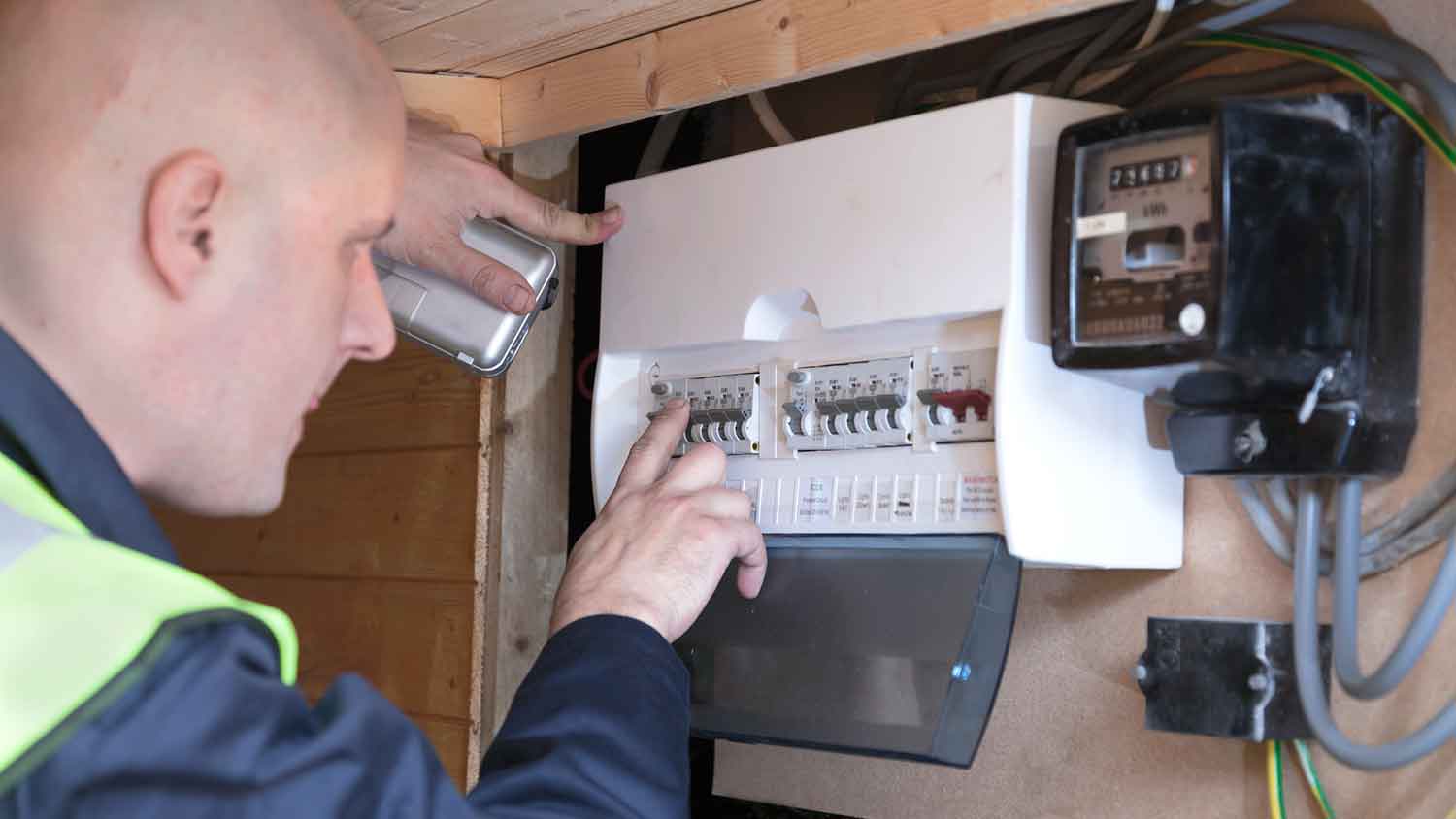
Always consult your city specialists prior to wiring installation and generator connection to help you determine the safest and most efficient approach.
Avoid linking your generator directly to your breaker box unless you have an authorized transfer switch in place.
Refrain from connecting your generator to a washing machine or dryer outlet.
Steer clear of running a generator indoors, including within your home or garage.
Ensure that children and pets are kept at a safe distance from your generator at all times.
Perform regular maintenance checks on the generator, including oil changes and filter replacements, to ensure reliable operation during emergencies.
Generator installations are not suitable DIY projects for homeowners who don’t have prior experience and training due to the high safety risk. Improper setups can create a serious fire hazard and pose the risk of electrical shocks. To ensure your generator is set up safely and working at maximum efficiency, always opt to work with a licensed electrician or a local home generator installation specialist. Professional generator installation costs are $2,000 to $15,000, depending on the type of generator and your home’s location.
From average costs to expert advice, get all the answers you need to get your job done.

The average cost of a whole-house generator falls between $5,000 and $25,000. Keep reading to learn how much you can expect to spend.

The cost to install a generator transfer switch depends on several factors. Our guide will help you understand all of the costs.
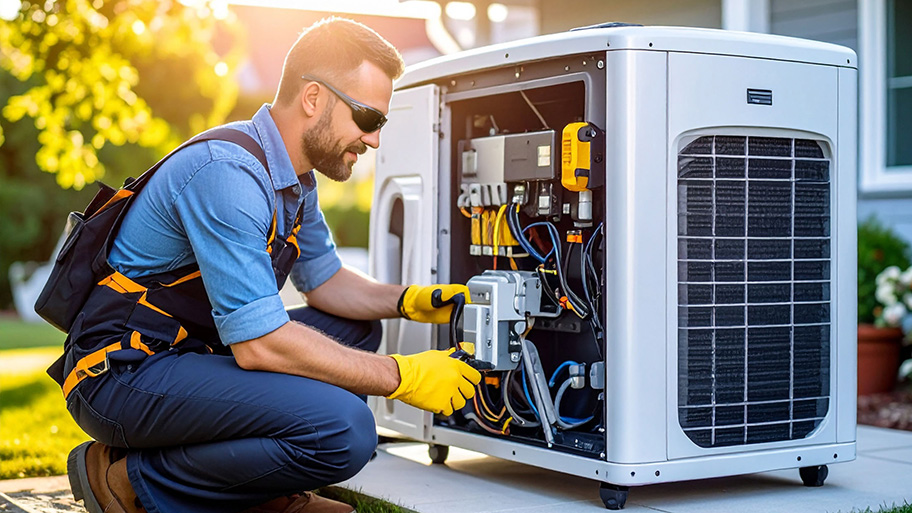
Keeping on top of generator maintenance and repairs gives you extra peace of mind as a homeowner. Find out how much regular generator maintenance costs.
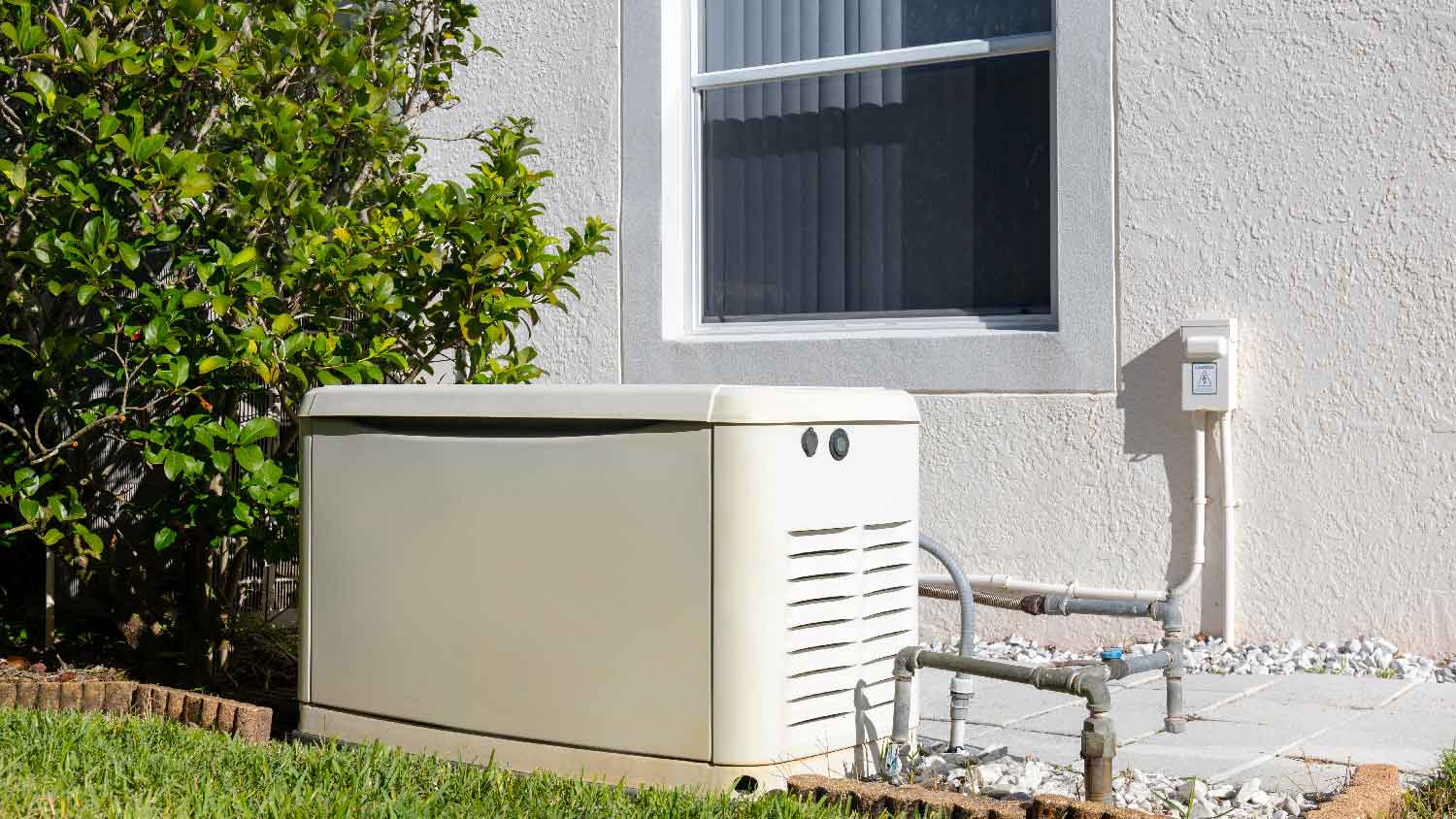
Before deciding between a gas generator and a natural gas generator, explore the differences. Compare gas vs. natural gas generator with our informative guide.

Having a back-up power source in case of emergency is important. Here’s how to use a generator to power your house.

Emergency generators come in many types and sizes to suit various needs. If you’re wondering what size generator to buy, here’s what to consider.